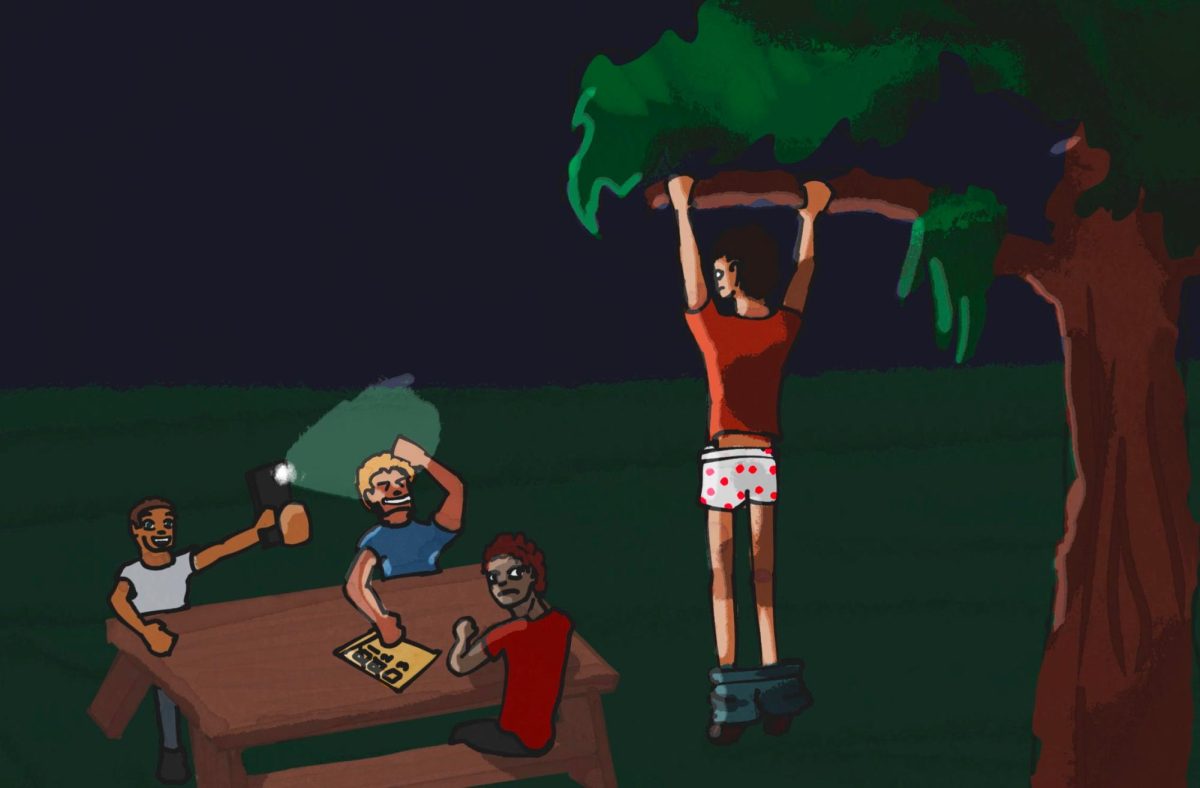
Adrenaline surges and tension builds as Daniel Smith* anxiously waits in the car as his friend walks up to a random man and slaps him. The man, eyes wide with anger, jumps to chase after him, but his friend had already retreated to his car, filled with uncontrollable laughter from the thrill of the moment. On any other night, this behavior would be considered crazy. But this wasn’t any other night; it was SCAV night.
Though not affiliated with schools themselves, teenagers around the country take part in a long-standing, voluntary, end-of-year tradition called SCAV. The name SCAV comes from the phrase scavenger hunt, a game in which people must collect or do things on a list in a certain timeframe. Teenagers have taken this game and given it a twist, having challenges ranging from taking a photo with a cop to getting a tattoo. Each challenge is worth a certain number of points based on its extremity; the more extreme, the more points. At the same time, precautions are taken to ensure the teens’ safety. The drivers of each car stay sober, and participants are welcome to opt out of any of these challenges as they please. Each challenge is recorded and sent to the person running SCAV to ensure that no one is cheating and to correctly count up points. Toward the end of the school year, teens who would like to participate in SCAV divide themselves into groups of four to six to fit in a car—the overall goal of these groups is to collect as many points as possible from sundown to 12:00 am.
Smith first learned about SCAV from his older brother, who showed him videos of his soccer team’s SCAV night and their crazy yet exciting dares. Intrigued by the wild stories, Smith couldn’t help but wonder what it would be like to be a part of SCAV himself. Since then, Smith has participated three times, and despite accidentally getting some vodka in his eyes and smoking an entire pack of cigarettes, he reflects on the night as being all about laughs and having fun.
“There’s no real way to justify what happens [on SCAV night], you just laugh it off and move on,” Smith said. “We’re teenagers having fun and messing around. So what if we drink or smoke? It’s all kind of just part of the thrill.”
Cam Johnson* recognizes that during SCAV, teen social norms shift for the night. There’s no expectation to follow rules or play it safe, as taking risks is not only accepted, but encouraged. He understands that though some challenges may be out of his comfort zone, they offer unique opportunities for memorable adventures with his peers. While Johnson recognizes that more extreme challenges like streaking down Landale Street may not initially come to mind at the thought of “class bonding,” he believes that SCAV has become a way to connect with his grade, creating memories and doing the stereotypical “dumb teen” things. Johnson also notes that the variety of challenges creates an opportunity for everyone to participate if they want to.
“That’s why [SCAV’s] a special night,” Johnson said. “It’s a night of questionable decisions but also a night of amazing memories that keep [our grade] connected. No one was complaining, everyone was so happy because there was a challenge for everyone. If there’s something you didn’t want to do, you could easily replace it with something better or equivalent that you could do. Overall, it was very good, it’s a night you’ll never forget.”
Sam Miller* similarly believes that the most fun part of SCAV is the fact that the challenges sit outside of socially acceptable behaviors. This defiance adds a layer of excitement that keeps teens motivated to push boundaries. According to information from Asheville Academy, a therapeutic residential treatment center for children, teens tend to neglect the impact of their actions as they base them on instant gratification, often leading to impulsivity. Miller echoes this idea as he acknowledges the hunger teens have to outperform everyone and earn points, which sometimes blurs judgment and makes it easy to forget the consequences of spontaneous choices. Though severely hungover the next day, Miller doesn’t regret any of his actions that night.
“I’m not someone who drinks alcohol, but that night, everyone around me was drinking and telling everyone to just keep going,” Miller said. “It got everyone, including me, so drunk to the point where people were getting tattoos and stuff. It felt weird because it’s not really like me, but I was just so wrapped up in it.”
Contrary to Miller, Layla Collins* has not yet participated in SCAV and knows of it merely based on what her peers in other grades have said. As her grade begins to prepare for their SCAV night, she’s found herself torn between the desire to take exhilarating risks with her friends or honor her own values to not drink or get with people she doesn’t know. She recognizes that while SCAV may be extremely fun and exciting for others, in her personal opinion, the risk outweighs the reward.
“I just feel like if you don’t do these things you might be considered boring or weird, so even though I’m against it there’s part of me that still really wants to be involved in SCAV without actually doing the challenges.” Collins said. “I’m just uncomfortable knowing I’d be filming myself doing some risky things and sending it to someone not knowing where it could go.”